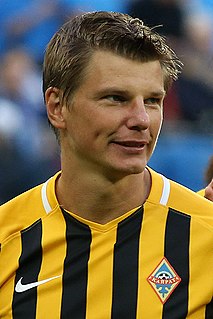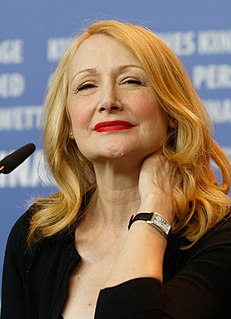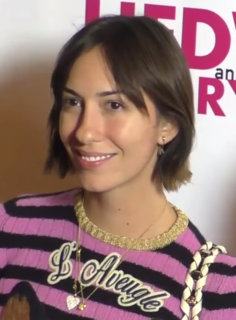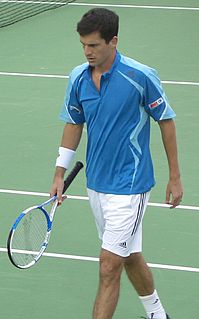Ein Zitat von Henry Jackman
Zeit mit jemandem zu verbringen, der zu den fünf besten Filmkomponisten der letzten 50 Jahre gehört, ist pures Gold. Ich meine, nicht unbedingt stilistisch, weil jeder anders klingt, wie seine Musik klingt, sondern in der Herangehensweise und wie man einen Film betrachtet, wie man über einen Film denkt, wie man entscheidet, was man tun möchte, wie man über Charaktere denkt , wie man über Kunst denkt, wie man über Erzählungen denkt, wie man mit Produzenten zusammenarbeitet, wie man mit Regisseuren zusammenarbeitet.
Themen zitieren
Etwa
unter
jedem
Ansatz
Kunst,
weil
Charaktere
Komponisten
verschiedene
Regisseure
entscheiden
Staub Jeder
jeder
ist anders
Film
Filmkomponisten
Fünf
Gold
Goldstaub
Wie
zuletzt
aussehen
gemeine
Musik
Erzählung
Unbedingt
Produzenten
Pure
Jemand
klingt
Nachdenken
verbringen Top Willst
, was du willst
Jahre
Verwandte Zitate
Jedes Mal, wenn ich einen Film oder eine Fernsehsendung sehe, denke ich darüber nach, wie dieser Komponist diese Entscheidungen getroffen hat und wie dieser Regisseur sich Musik vorgestellt hat und wie das auf der Bühne oder in einem Film funktionieren könnte und wie man das noch weiter unterstützen könnte, indem man Texte dazu einfügt.
Heutzutage gibt es viel Musik, in der die Leute darüber singen, wie toll ihre Kleidung ist und wie unglaublich ihre Schuhe sind und wie viel Schmuck sie tragen oder wie viel Schmuck sie wollen, wie viel Geld sie haben und in welchem Club sie sind und in welchem Club sie sind der Alkohol, den sie trinken. Ich denke, das ist Angeberei. Ich denke nicht, dass es unbedingt so ehrlich oder so interessant ist.
Ich denke, für jede Information über jede Art von Kunstform ist es immer der richtige Zeitpunkt. Aber seit dem letzten habe ich gesehen, dass es viele Dinge in der DJ-Kultur gibt, über die wir nicht wirklich reden. Wir achten nicht wirklich darauf, wie die Musik gemacht wird, wie sie konzipiert ist, wie sie zusammengestellt wird. Wir reden über die Ausrüstung und die Software, aber wir reden nicht über die Gründe, warum wir die Musik überhaupt zusammengestellt haben.
Man spielt in einem Film mit, also muss man darüber nachdenken, wie etwas abläuft. Es ist nicht so, dass Sie darüber nachdenken, wie das Publikum reagieren wird. Sie versuchen, die Geschichte darzustellen. Sie versuchen, das Leben dieser Menschen in der Geschichte zu beleuchten. Deshalb denke ich darüber nach, wie mein Verhalten als dieser Charakter am besten verdeutlicht, was in diesem Moment mit ihnen los ist. Ich sage immer, es ist sozusagen die Aufgabe des Regisseurs. Die Leute denken, dass die Regisseure die Schauspieler inszenieren. Nein. Eigentlich geht es dem Regisseur darum, den Blick des Publikums durch den Film zu lenken.
Die tiefere Realität ist, dass ich nicht sicher bin, ob das, was ich tue, real ist. Normalerweise glaube ich, dass ich mir meiner Gefühle sicher bin, aber das scheint naiv. Woher wissen wir, wie wir uns fühlen? … Es gibt mit ziemlicher Sicherheit eine konstruierte Kluft zwischen (a) wie ich mich fühle und (b) wie ich denke, dass ich mich fühle. Es gibt wahrscheinlich auch eine dritte Ebene – wie ich denken möchte, dass ich mich fühle.
Das Besondere an der Bildung – und warum mir die Stellung und der Status der Universität so am Herzen liegen – besteht darin, dass sie den Bürgern beibringen soll, besser zu denken, kritisch zu denken, Wahrheit von Unwahrheit zu unterscheiden und ein Urteil zu fällen darüber, wann sie belogen und getäuscht werden und wann nicht, wie man wissenschaftlichen Unterricht bewertet. Der Verlust dieser Ausbildung der Bürger ist ein äußerst gefährlicher Weg.
Ich habe ein brillantes Sounddesign-Team, das seit „Mr. „Robot“, und eines der Dinge, über die wir immer nachdenken – und das ist auch etwas, worüber wir bei der Kinematografie nachdenken – ist, wie wir in die Köpfe der Charaktere eindringen und wie wir das Publikum dort platzieren, wo wir es haben wollen oder wie wir es haben wollen zu jedem Zeitpunkt fühlen.
Im Kern bin ich Schauspielerin. Und ich denke, das ist in gewisser Weise eine gute Sache, da ich meiner Meinung nach einfühlsam und mitfühlend für den Film bin. Ich würde niemals behaupten, dass ich den kritischen und scharfsinnigen Blick habe, den viele der großen Kritiker in unserer Branche haben. Ich betrachte es nicht als Kritik oder als Urteil über einen Film, und ich denke schon: Wie entscheidet man überhaupt, welcher Film der beste ist? Es ist immer ein bisschen gemischt. Aber ich denke, es ist nur eine kollektive Gruppe von Menschen, die zusammenkommen, um die Arbeit eines Künstlers zu würdigen – so denke ich darüber.
Es ist erstaunlich, wie unterschiedlich jeder seine Arbeitsweisen hat. Ich höre gerne von diesem Prozess und lese darüber. Ich schätze Filme so sehr, weil ich weiß, wie schwer es ist, einen zu machen. Es gibt immer etwas für mich, wenn ich mir einen Film ansehe, sei es eine alberne Liebeskomödie oder ein Kunstfilm.
Ich denke, wenn man sich zu sehr um die Wirtschaftlichkeit kümmert, beeinträchtigt das allmählich den kreativen Aspekt des Films. Das ist ein gefährlicher Prozess für einen Filmemacher. Er sollte seinen Film machen, ohne sich Gedanken darüber machen zu müssen, wie viel er gekostet hat oder wie viel er verkauft wird.
Wenn Sie ein gesprochenes Gedicht schreiben, sind die Werkzeuge, mit denen Sie arbeiten, Ihre Stimme, Ihr Körper und wie es für jemanden klingen wird, wenn Sie es laut aussprechen. Das ist anders, als wenn Sie es auf die Seite schreiben. Dieser Werkzeugkasten stellt dar, wie dies visuell auf der Seite aussieht, wie es sich zwischen den Seiten liest, wie es im Verhältnis zu den Gedichten steht, die davor oder danach stehen. Ich glaube nicht, dass das eine besser oder erfolgreicher ist als das andere. Sie müssen nur darüber nachdenken: „Welche Tools verwende ich und wie sind sie in dieser Form am effektivsten?“








































